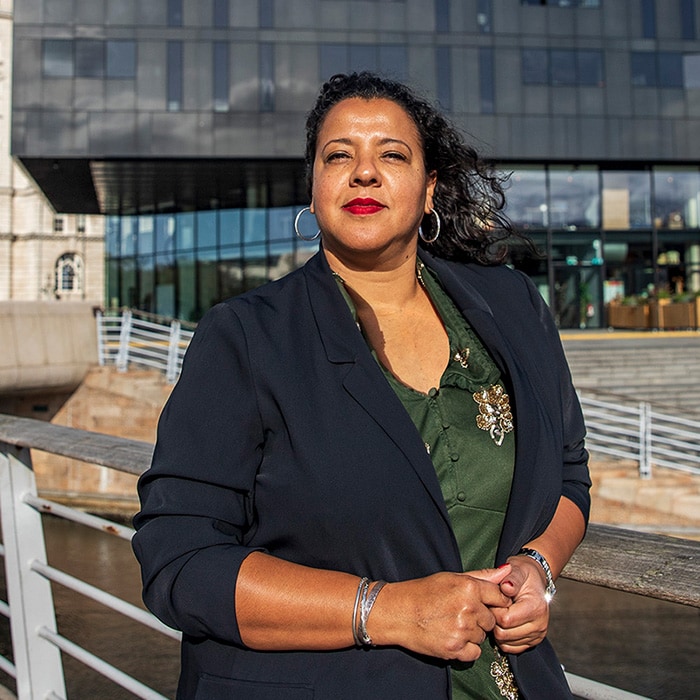
A social value programme “like no other” for Liverpool City Council
Changes to major public sector procurement introduced by the government in 2021 mean that suppliers are now assessed on the broader economic, environmental and social benefits they would bring to a contract.
Setting the scene
When Liverpool Mayor Joanne Anderson challenged PwC to create genuine social value in the city, in addition to an Adult Social Care transformation project, we responded with the launch of ‘New Horizons’ just a month later. The programme brought together 20 students from four schools, with one shared goal: to help change these young people’s lives.
How we helped
Liverpool is home to some thriving industries and regeneration projects but the latest Demos-PwC Good Growth for Cities report found it scores below average on a number of indicators - including income and skills. With social value representing one of three core elements of Liverpool City Council’s (LCC) ‘triple lock’ agenda - alongside climate change and equality - our Government & Healthcare Industries and Social Mobility teams worked together with the client to design a programme tailored to the city’s specific needs.
The three parts of the New Horizons programme were all geared towards improving confidence and employability among 20 students aged 16-17 from four of Liverpool’s disadvantaged schools.
We invited the students to a consulting taster session. This was followed by a six-week mentoring scheme to prepare them for the final stage - PwC's New World, New Skills paid work experience week in August 2022.
We developed the programme with seven people from LCC who would later become mentors.
The consulting taster session ran over two days, including one in PwC’s Manchester office so the students could see first-hand what working in a consulting firm is like. Our teams explained career paths, while helping the young people to gain core skills and confidence as a step toward further education or employment. It also served the vital purpose of helping them see themselves ‘there’.
The credibility of any such scheme relies on visible representation, particularly for disadvantaged students, so we created an agenda which was inclusive and representative, and brought together the best of our firm. For instance, one of the speakers (a PwC senior manager) had previously been a teacher in Liverpool, and had even taught one of the students.

“One of the problems we struggle with most in disadvantaged areas in Liverpool is a skills gap and low aspirations. We believe the impact of the social value delivered by PwC will have far-reaching consequences – particularly in addressing the skills gap in the longer term.”
Our impact
The greatest impact from the two days came from the final activity, for which groups of students were given a real-life case study (drawn from the Mayor’s manifesto) and asked to apply what they’d learnt over the previous two days. They worked in teams and applied their new skills to devise solutions, present them to a panel of senior PwC colleagues, then take questions about their work.
The students then completed their mentoring scheme, in which 20 mentors from across PwC and LCC attended an hour-long, one-to-one session with each student for six weeks. Just after the close of the financial year, the group joined us for their New World, New Skills paid work experience, which has seen our people volunteer over 3,440 hours, reaching over 5,300 beneficiaries.
The Mayor and our LCC colleagues reported that the programme set an excellent standard for how businesses can engage with Liverpool’s schools, and have showcased it at an event for their schools and business network.
“We have worked with many employers, but this programme is like no other. The difference it has made in these young people’s lives is clear to see.”
We learnt how hungry the students were for new experiences: many had never left Liverpool before. Most importantly, their feedback was hugely positive - with 100% saying they’d acquired new skills. They all also said they’d achieved the goal they set themselves on day one and that they’d recommend the experience to a peer.
We also discovered the value of partnership with LCC, and the importance of seeing employability as a journey, not a one-off commitment. For example, although our original aim had been to mentor all 20 students ourselves, we realised that sharing this responsibility with Council staff would enable them to develop mentoring capacity themselves as a legacy of the programme.
For our firm, New Horizons cemented what high-quality social value achieved alongside an engagement looks like - and we’ve begun implementing a similar programme at another council. As Nancy Park, Social Value Partner Lead, puts it: “Delivering social value is core to our purpose. We welcome the public sector challenge to use all of our engagements for good.”
Since the LCC project, we have established a Social Value Fund - allowing us to support projects which enhance social, environmental and economic benefits for the communities we serve.








